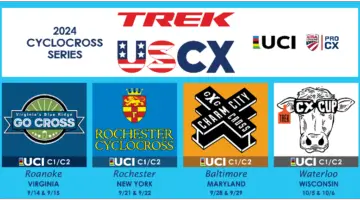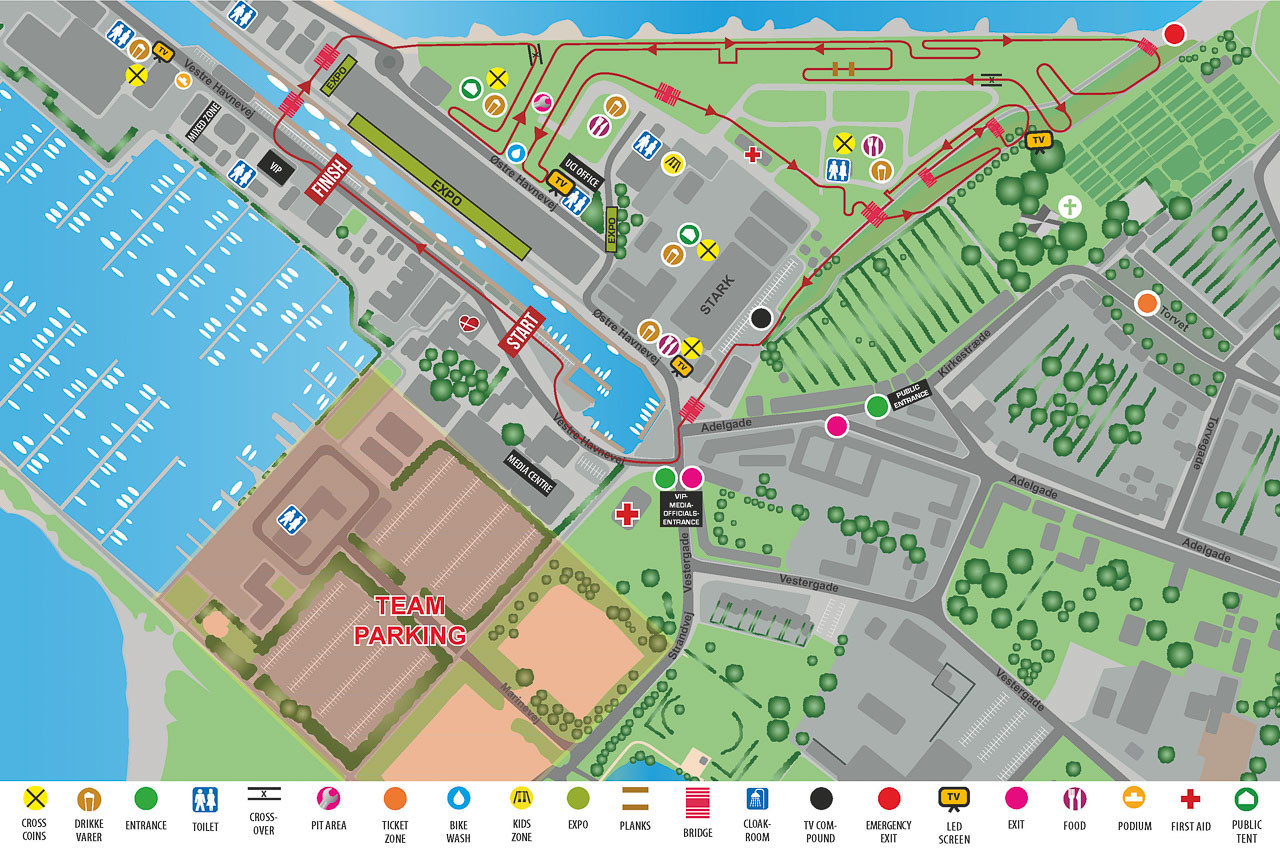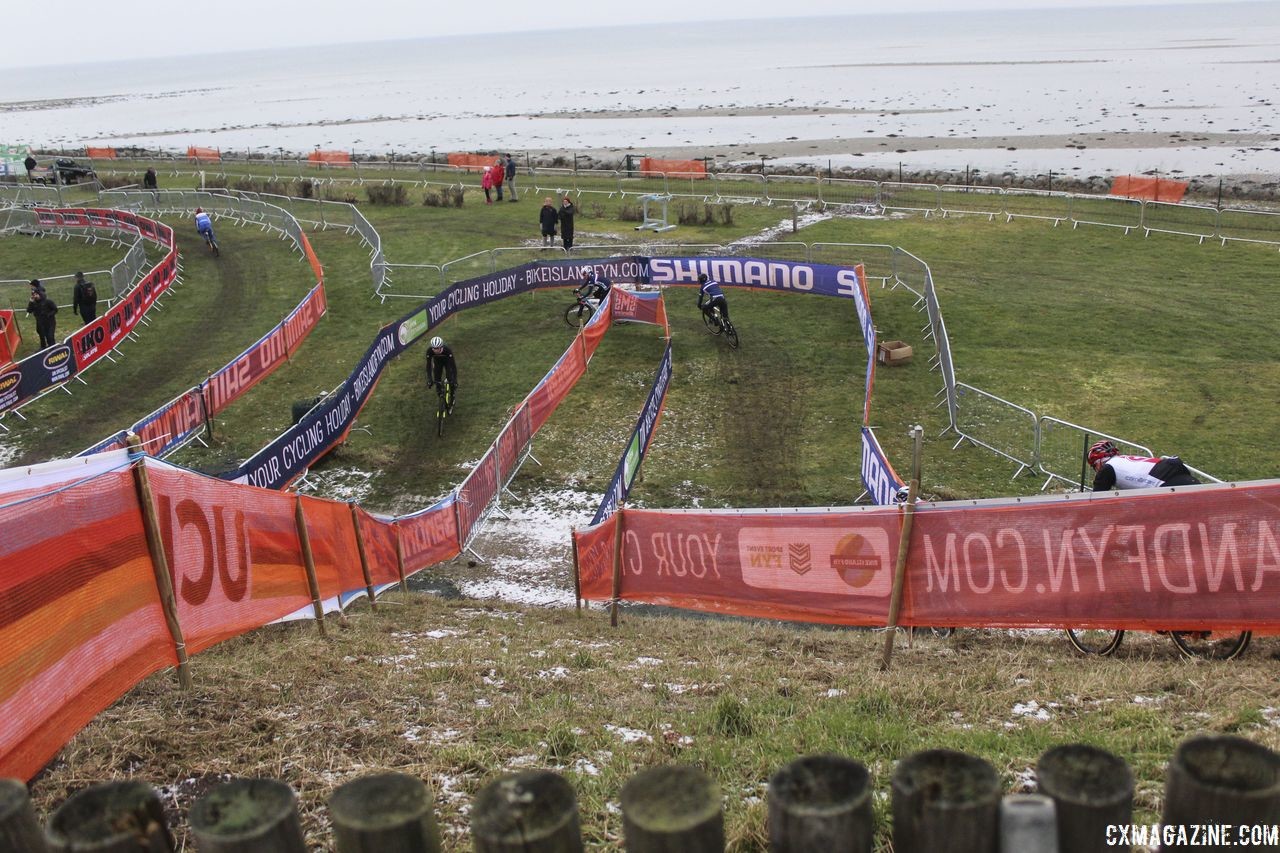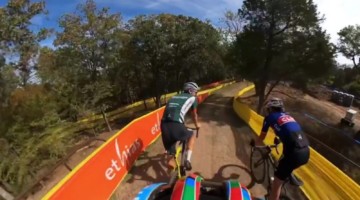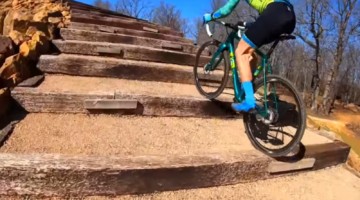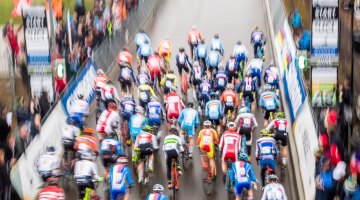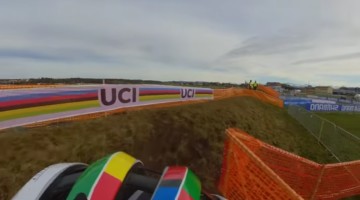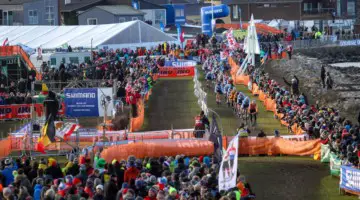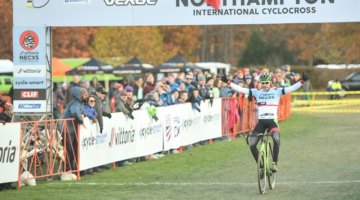
Coverage of 2019 Worlds is brought to you in part by Easton Cycling. See all the new hubs, bars, stems and wheels.
Last season’s World Cup in Bogense certainly raised some questions about what the 2019 World Championships track would look like. I headed out to the Danish seashore to take a look at the course during Thursday’s course inspection.
First off, how to say Bogense. I have heard alternately bo-wen-suh and bone – suh, not bo-gence, not bow-gen-say. So take your pick.
With temperatures hovering near freezing and a light snow falling on and off, many of the race favorites took the afternoon off before they hit the course for Friday. A handful of Elite U.S. riders, primarily from the Cannondale p/b CyclocrossWorld team, did some laps on Thursday, while new Cyclocross Manager Jesse Anthony and Meredith Miller checked out the course with the U.S. Junior and U23 riders. USA Cycling dictated the ride times, according to Becca Fahringer.
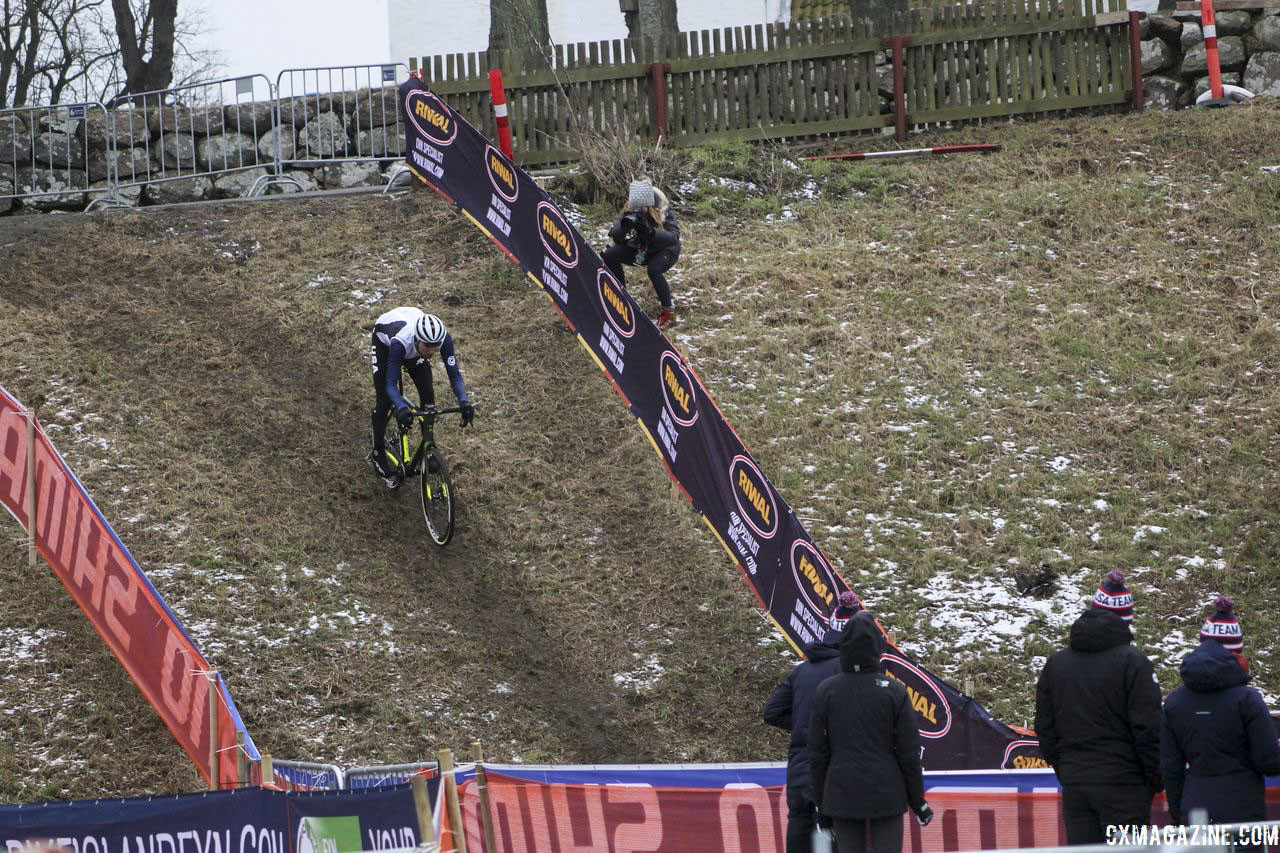
A group of younger U.S. riders was out looking at the course Thursday. Bogense World Championships Course Preview. © Z. Schuster / Cyclocross Magazine
The course itself is certainly an interesting one. It can largely be divided into “the flat part” and “the steep part.” The steep part is thanks to a roughly 10-foot high seawall with a steep embankment behind it that goes up toward the tall Lutheran Church that towers over the course. Much of the flat part of the course is located on and near a campground that gets used during the summer.
The course map shows the layout of the track, starting along the Vestre Havnevej street that almost looks like a long pier.
The race starts with a long drag out toward the sea. Since the races are spread apart, time-wise, the start grid is immediately adjacent to the start/finish stretch.
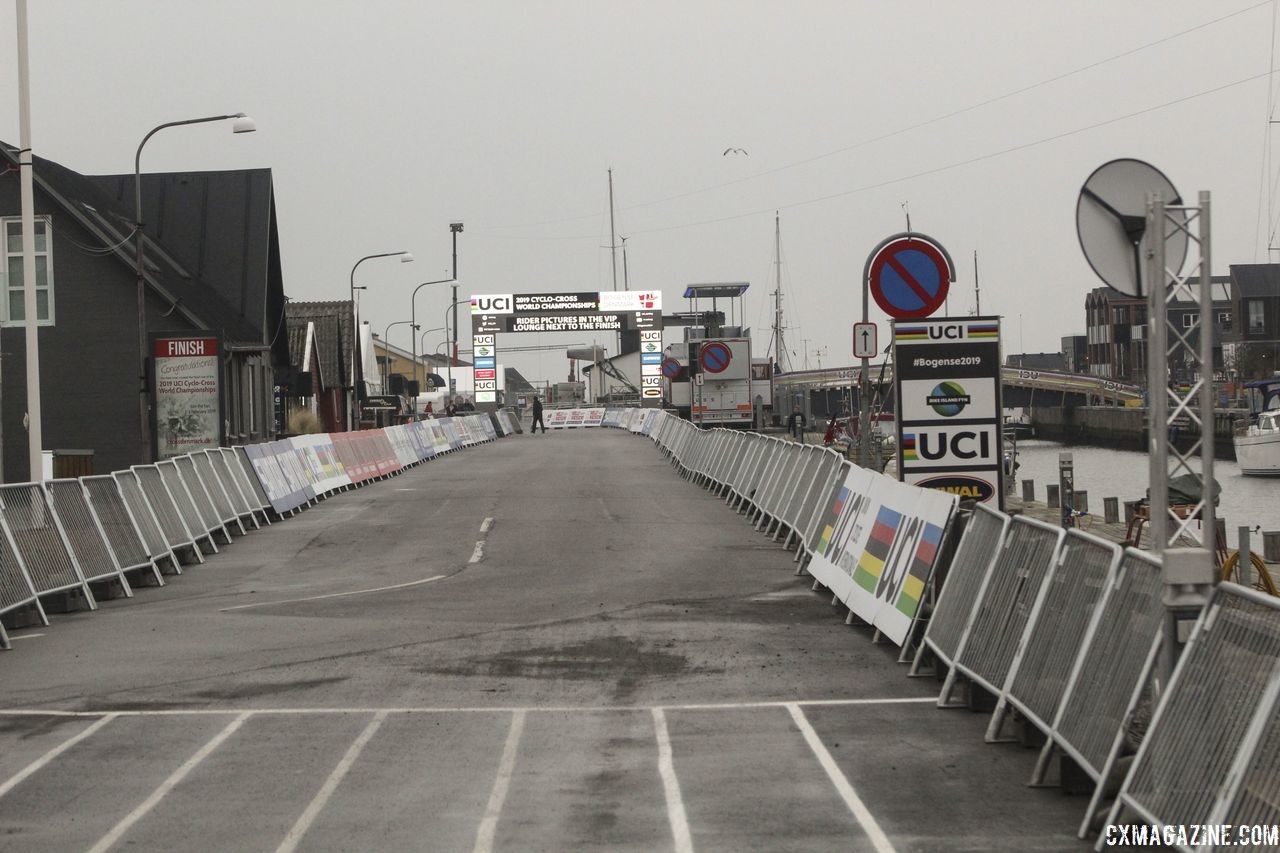
The track starts with a long drag down the pier. 2019 Bogense World Championships Course Preview. © Z. Schuster / Cyclocross Magazine
The start/finish presents a couple of challenges. First off, it is separate from the rest of the course, meaning the narrow footbridge and flyover under crossing are likely to get congested as the race finishes approach.
It is worth noting that folks coming to Bogense to watch the races should plan on scouting out the course and its crossing opportunities. I found myself getting stuck in spots and being unable to get where I wanted to in an easy fashion.
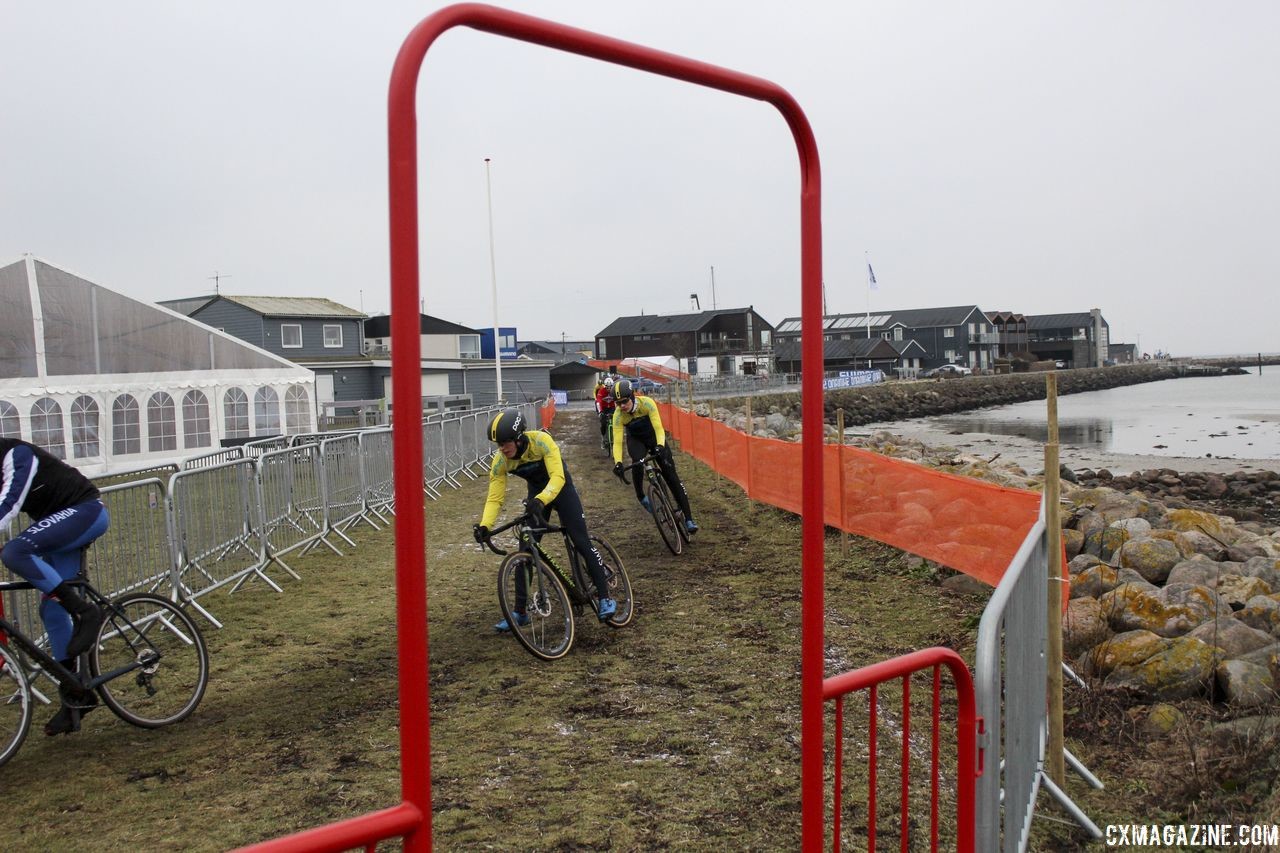
There are a few course crossings but not many. Scout out the course before the races you want to watch. 2019 Bogense World Championships Course Preview. © Z. Schuster / Cyclocross Magazine
The other challenge is, of course, the riders getting across the water. The start straight ends with a near 90-degree turn onto a bridge that also includes a narrow crossing for spectators. Coming off pavement, especially depending on how frozen or mud-covered the surface is, could make the first turn a dicey one.
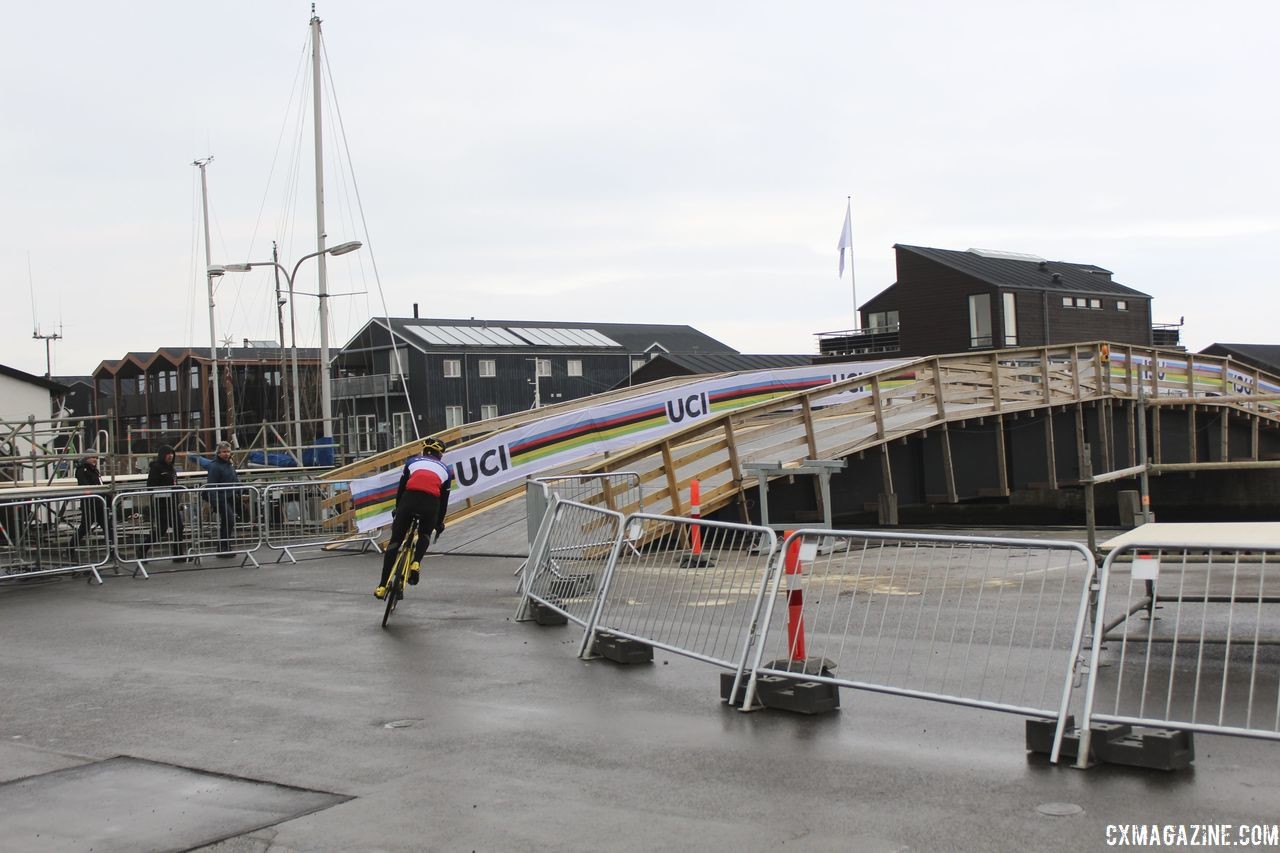
The holeshot ends with a sharp right onto a bridge. It also has a path for spectators. 2019 Bogense World Championships Course Preview. © Z. Schuster / Cyclocross Magazine
Once over the bridge, the course goes due east all the way to the far side of the venue in a series of three straight sections broken up by Pit 1 and then some turns.
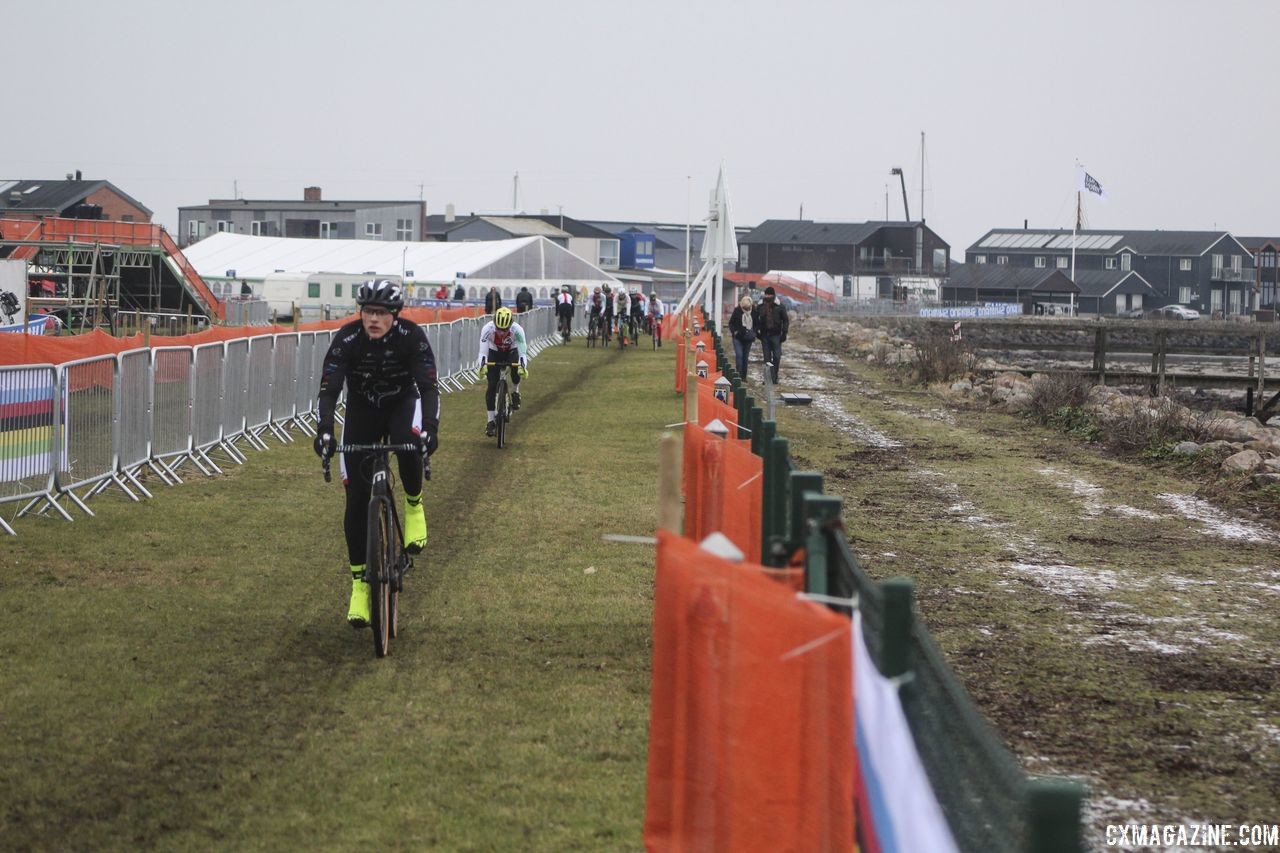
There are several long drags along the sea.2019 Bogense World Championships Course Preview. © Z. Schuster / Cyclocross Magazine
The main straight is one of the longer, flatter ones we have seen on a European cyclocross course.
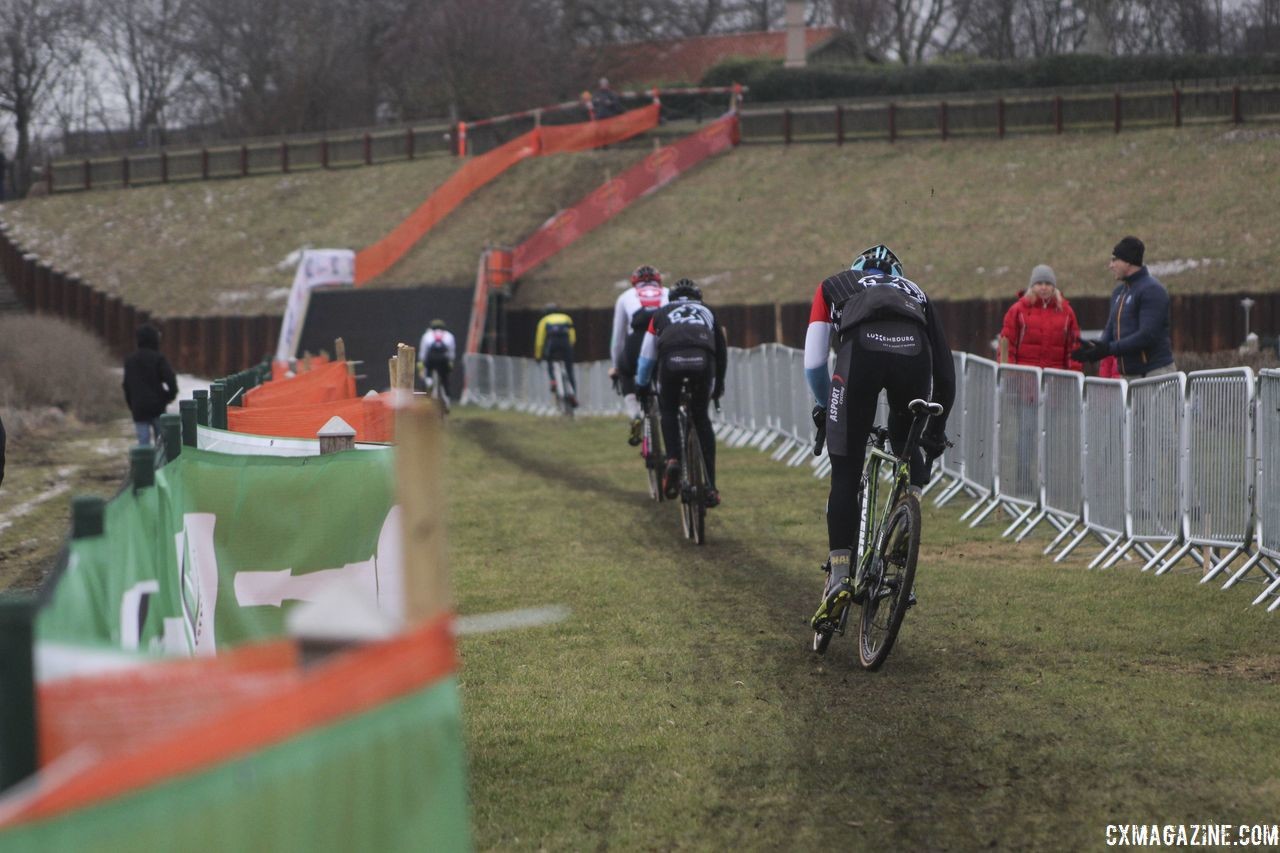
The last long section leads to the embankment. Where the fun starts. 2019 Bogense World Championships Course Preview. © Z. Schuster / Cyclocross Magazine
The far northeast corner of the venue is where the fun starts, with fun meaning a series of ups and downs the steep seawall. Photos do not necessarily do justice to how steep the embankment is.
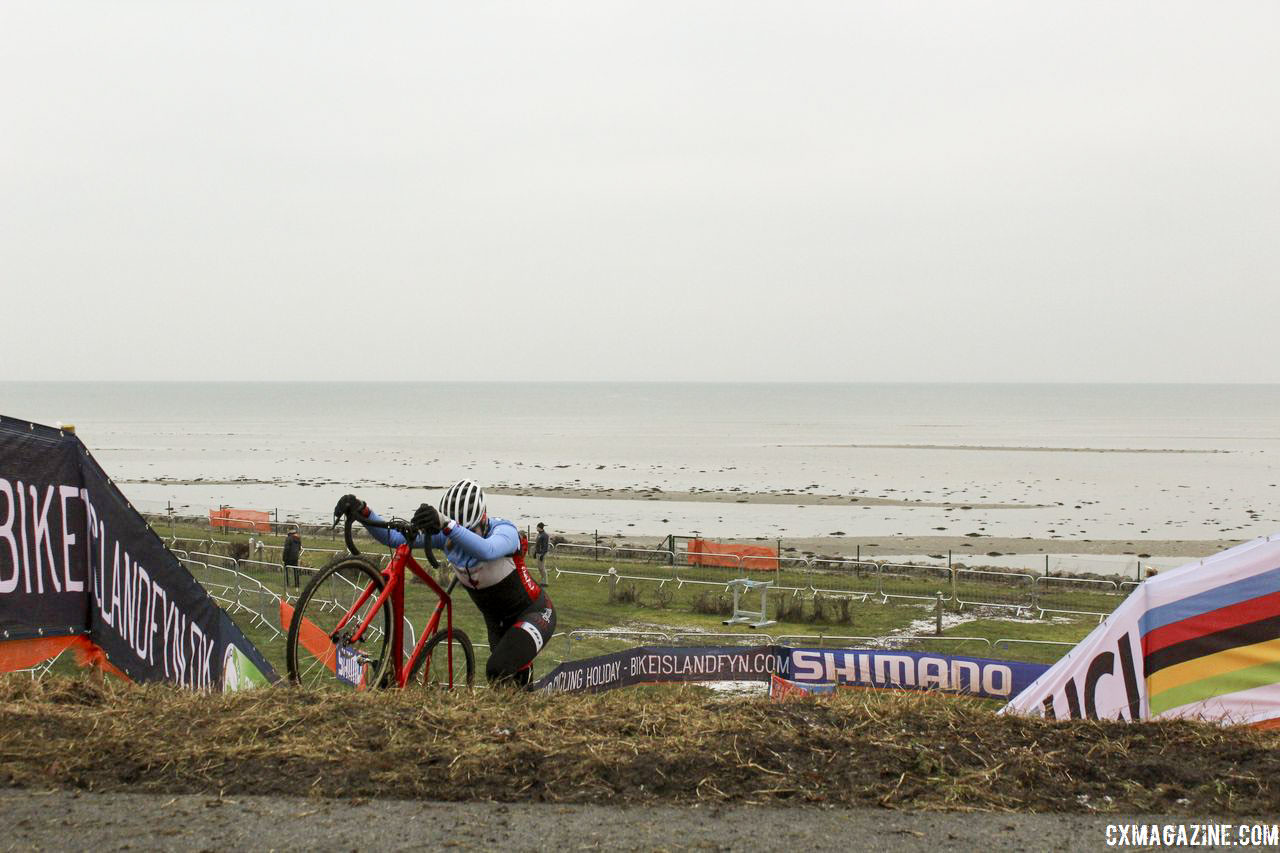
The run-ups and their following descents are steep. 2019 Bogense World Championships Course Preview. © Z. Schuster / Cyclocross Magazine
Speaking with Katie Compton, although she thinks the descents will be a small advantage for those with technical skills, they are all very narrow with more or less one line through each, meaning things can slow up quickly behind tentative riders or crashes.
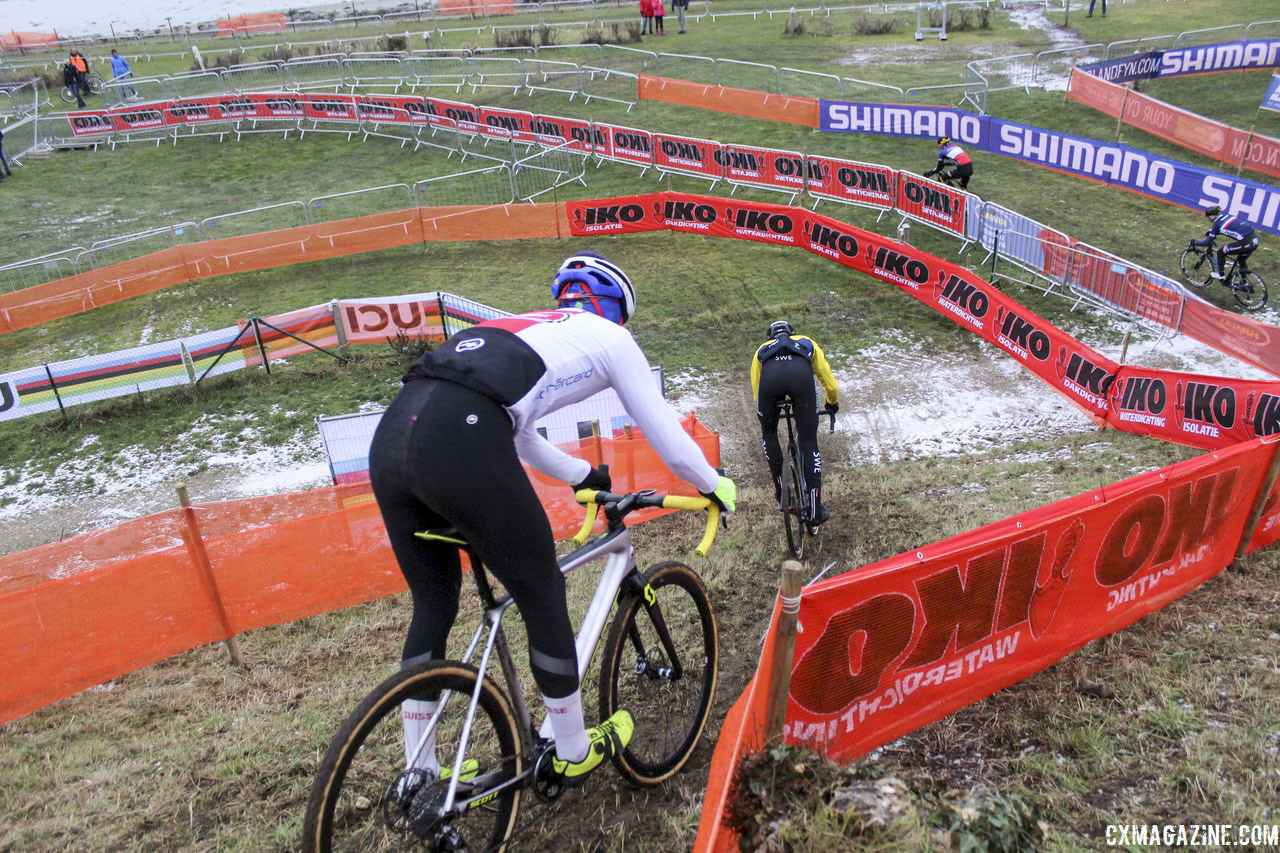
The drops are quite steep. 2019 Bogense World Championships Course Preview. © Z. Schuster / Cyclocross Magazine
With abrupt transitions thanks to steep descents, Nick Carter and Jared Scott—as well as Compton—said they would be trying higher tire pressures than usual tomorrow.
The first descent is a down – up – down in quick succession.
From there, the track heads back to the west the length of the campground, parallel to the long drag that goes toward the far corner of the venue.
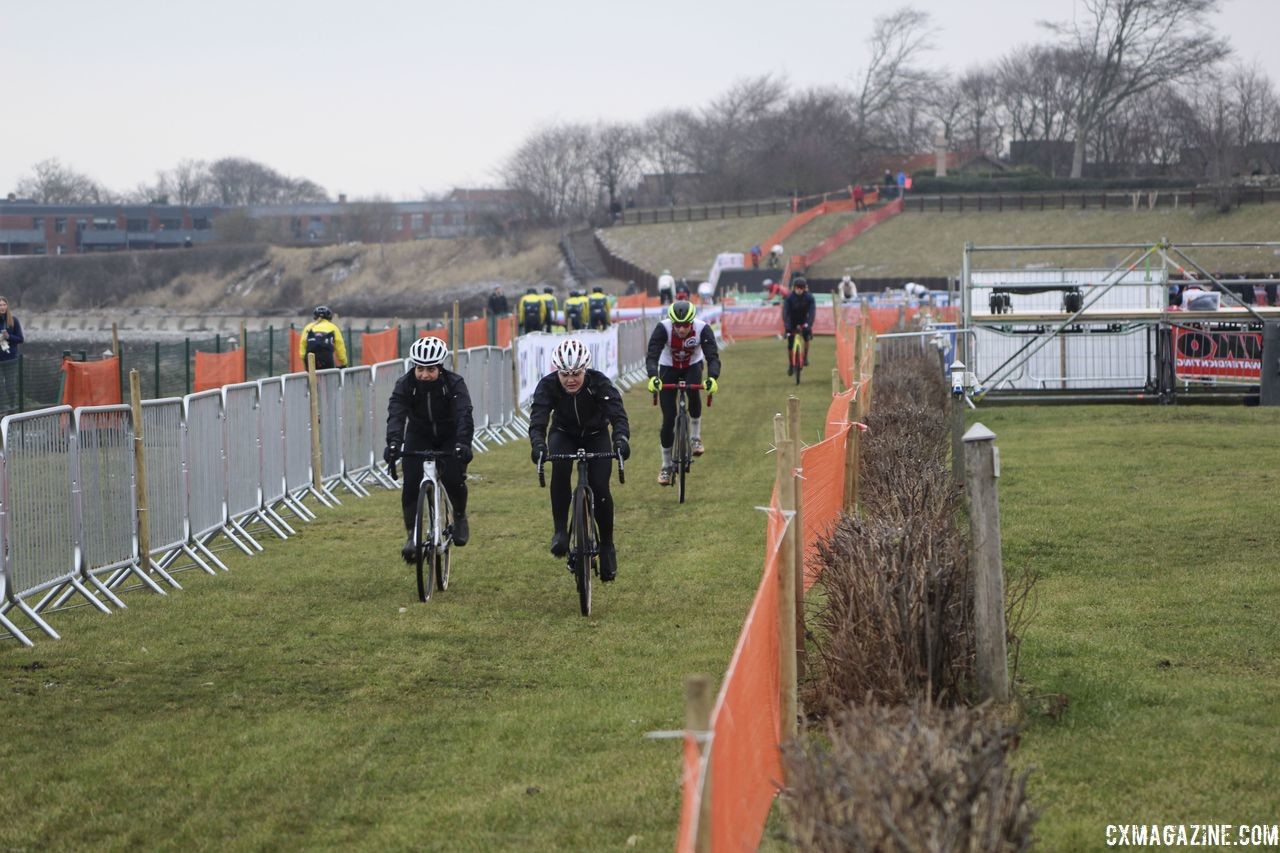
Traffic heading out and heading back toward the barriers. 2019 Bogense World Championships Course Preview. © Z. Schuster / Cyclocross Magazine
Included in the trip back toward the start is a trip through the barriers, which were looking quite plain on Thursday.
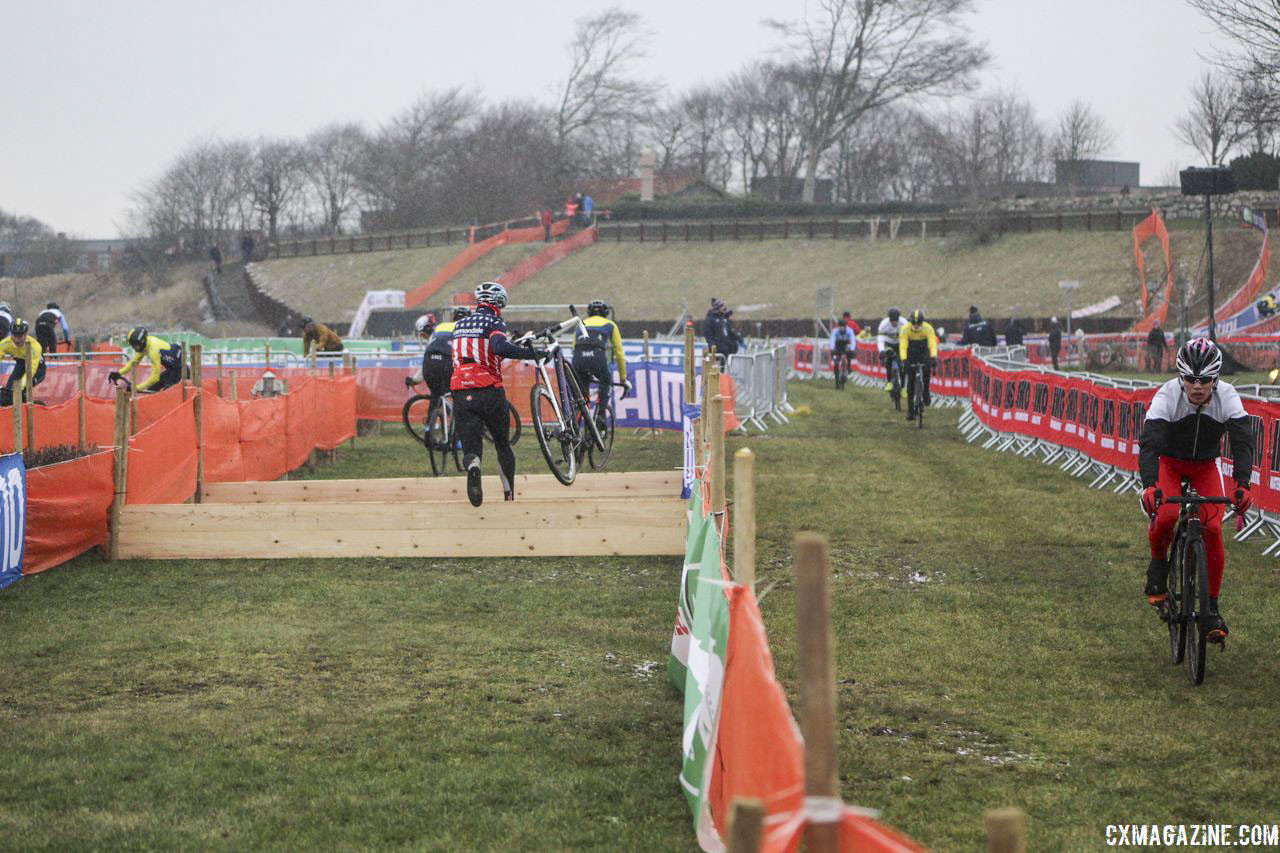
The barriers were looking plain on Thursday. 2019 Bogense World Championships Course Preview. © Z. Schuster / Cyclocross Magazine
The ground in Bogense can best be described as “frozen” right now. The top layer is melting a bit, but by and large, the ground is hard and fast. Riders I spoke with told me they are expecting conditions to stay hard and fast, especially as the chance for rain in the forecast decreases.
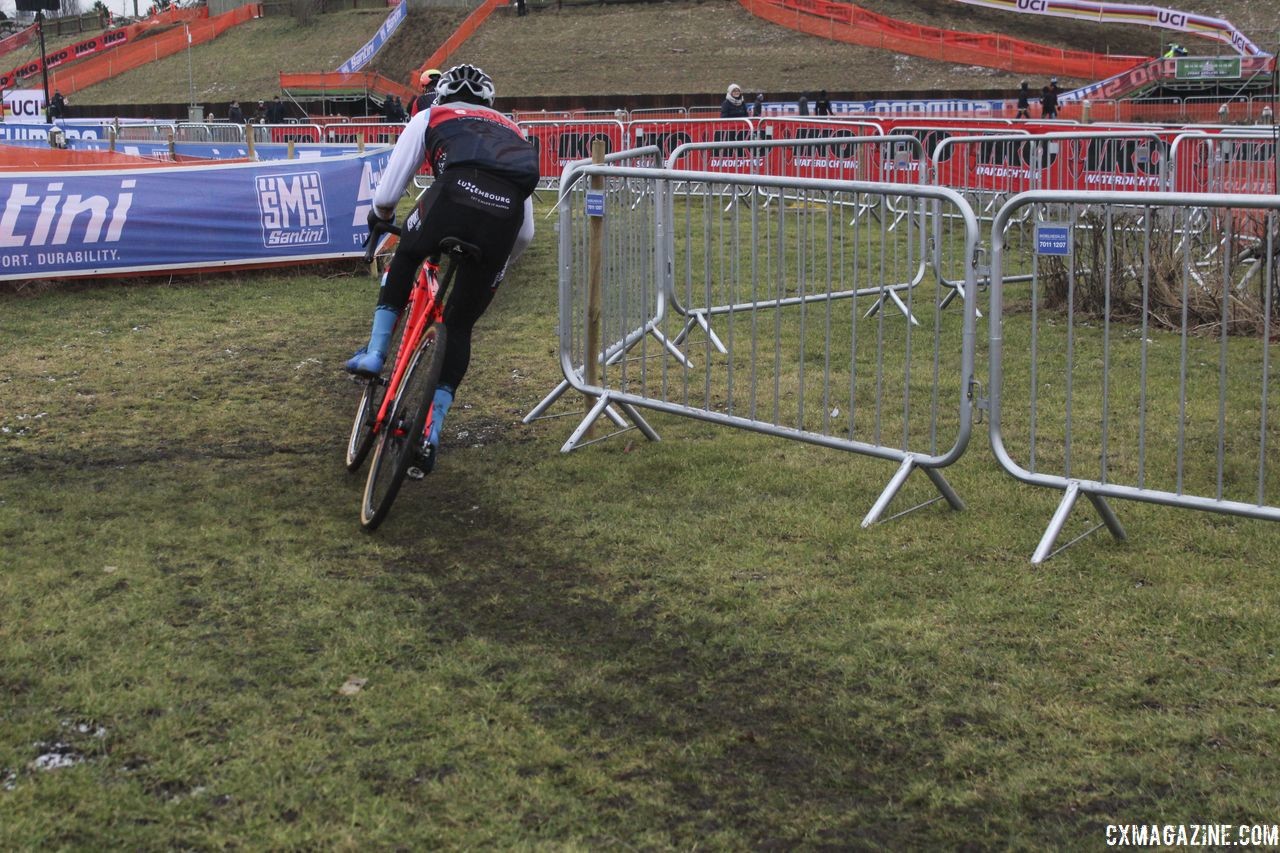
The course is frozen and fast right now. 2019 Bogense World Championships Course Preview. © Z. Schuster / Cyclocross Magazine
After going past Pit 2, the track goes over a flyover into the second trip through the steep ups and downs. A series of flyovers are necessary in this part of the course to get up and over the nearly 10-feet tall steel sea wall. Certainly a design we do not see every day.
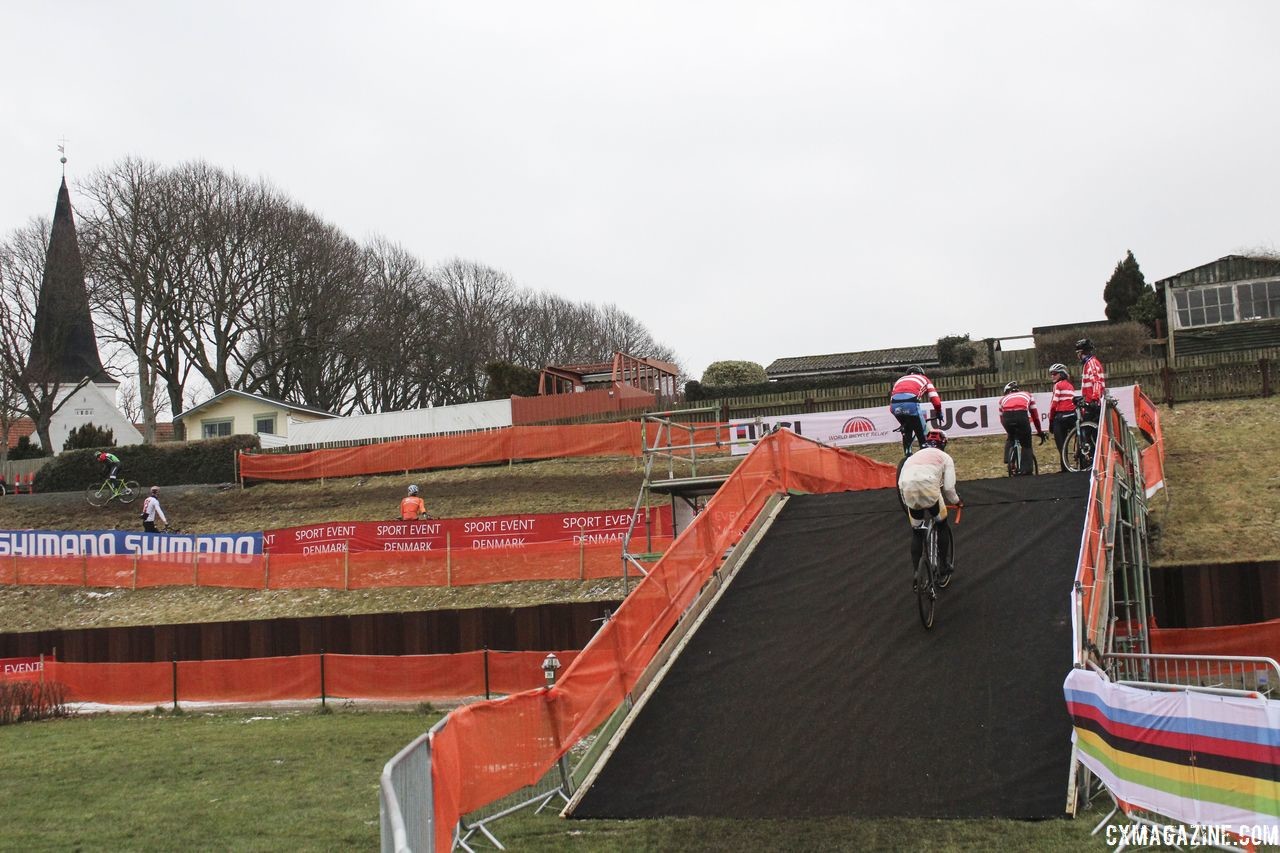
Flyovers are necessary to get up and over the 10-foot seawall. 2019 Bogense World Championships Course Preview. © Z. Schuster / Cyclocross Magazine
The first trip back up the embankment is via a flyover and then an off-camber with a somewhat tricky exit. A number of young Danish and Dutch riders were sessioning the section, trying to figure out the best line through and then out of the section.
Next up is an off-camber descent into a flyover, then up a flyover to the top of the embankment for one last time. On Thursday, all the descents were rideable—no running descents like 2017, yet—and most of the ups were run-ups. Eli Iserbyt rode a lap or two at the end of the afternoon and nearly rode the last incline, but he still had to dismount at the top.
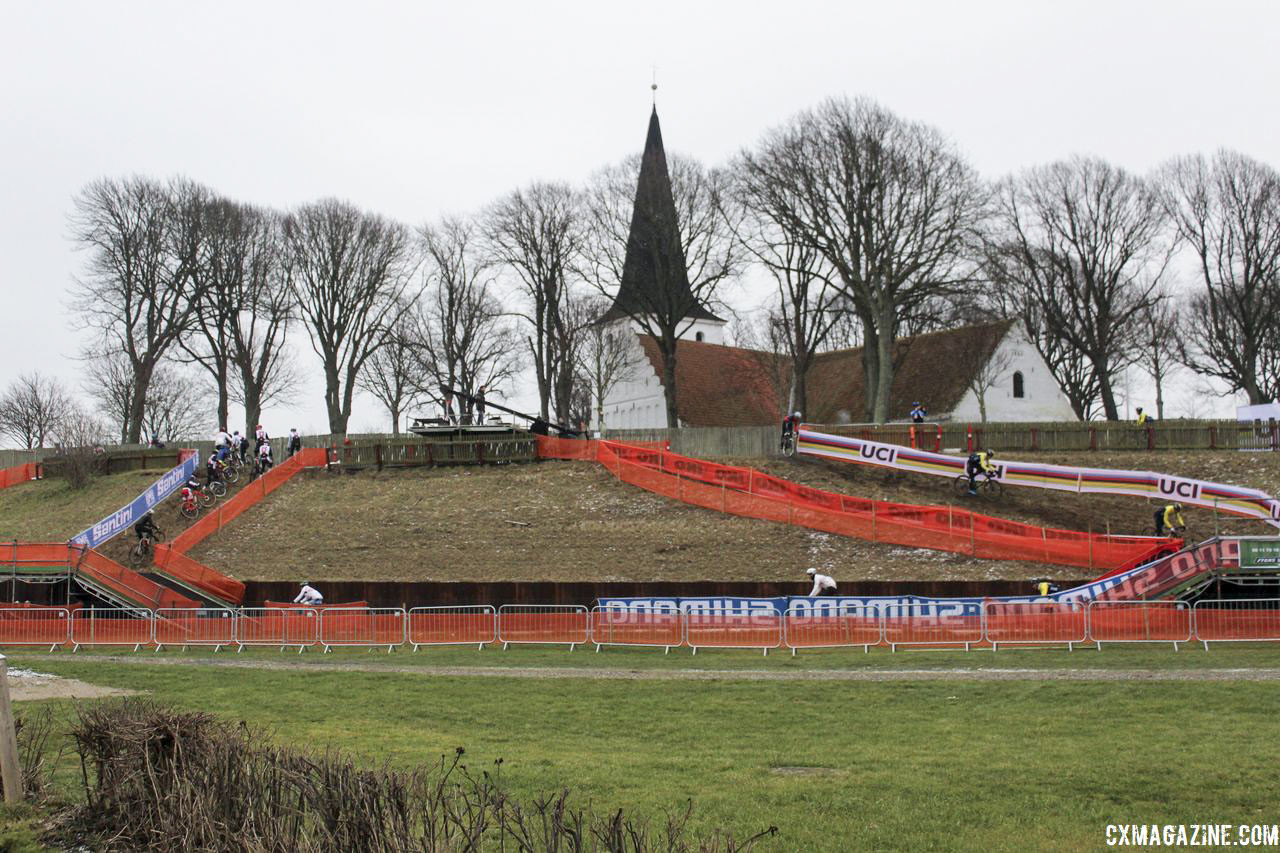
A descent into a flyover and then a flyover to a hill is not something we see every day. 2019 Bogense World Championships Course Preview. © Z. Schuster / Cyclocross Magazine
From there, the course features one last drag race along the seawall to one last flyover before riders hit the pavement and head down Vestre Havnevej for the start/finish straight.
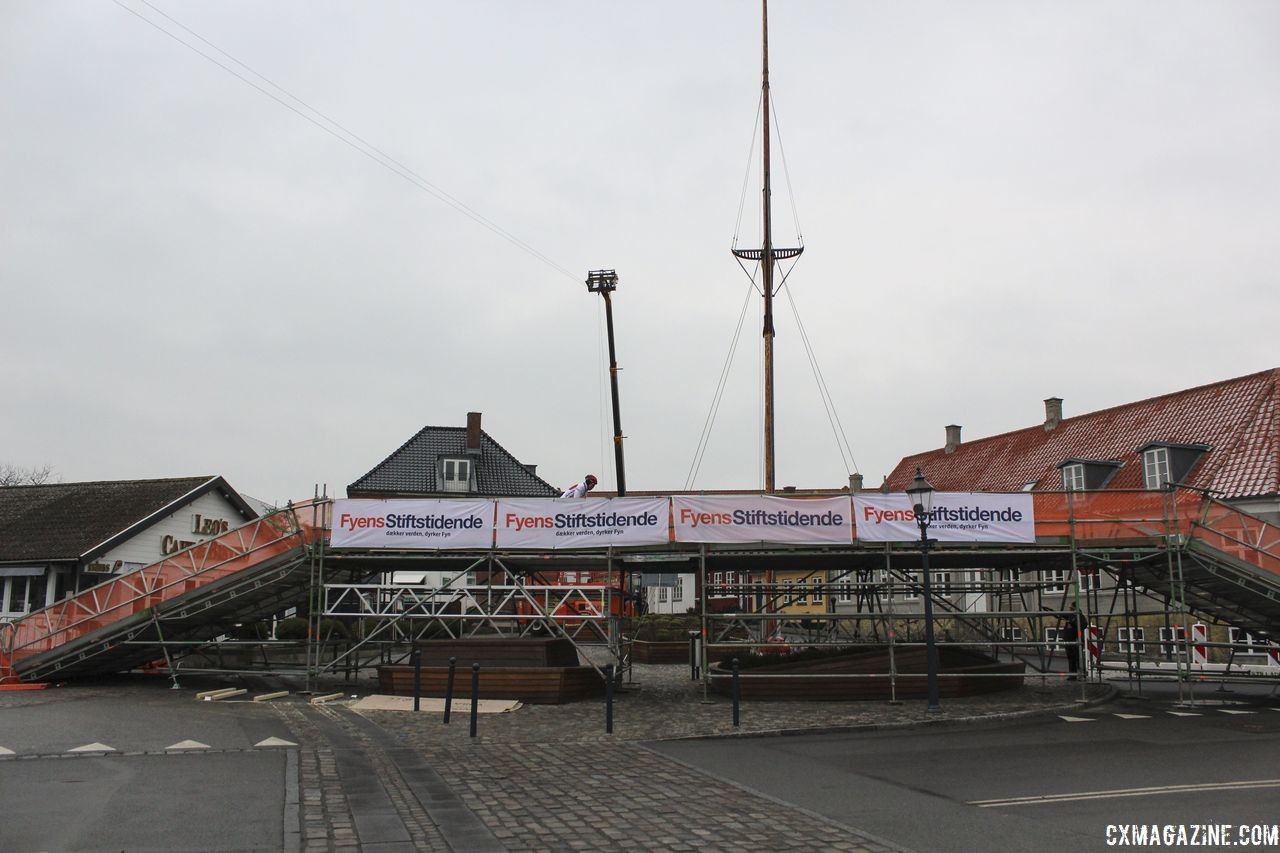
One more flyover with a little nautical theme takes riders home. 2019 Bogense World Championships Course Preview. © Z. Schuster / Cyclocross Magazine
One last thing of note is that several journalists reporting from the course have found sharp mussel shells both on the pier and the flat, grassy part of the course. After talking with fellow journalist Bill Schieken about the mussel issue Thursday night, he was able to go out and find some. We did not hear any reports from riders getting flats during course inspection, but it is something we will keep an eye out for on Friday.
Stay tuned for more about the course during Friday’s course inspection. It did snow last night, and course conditions are certainly subject to change between now and then.
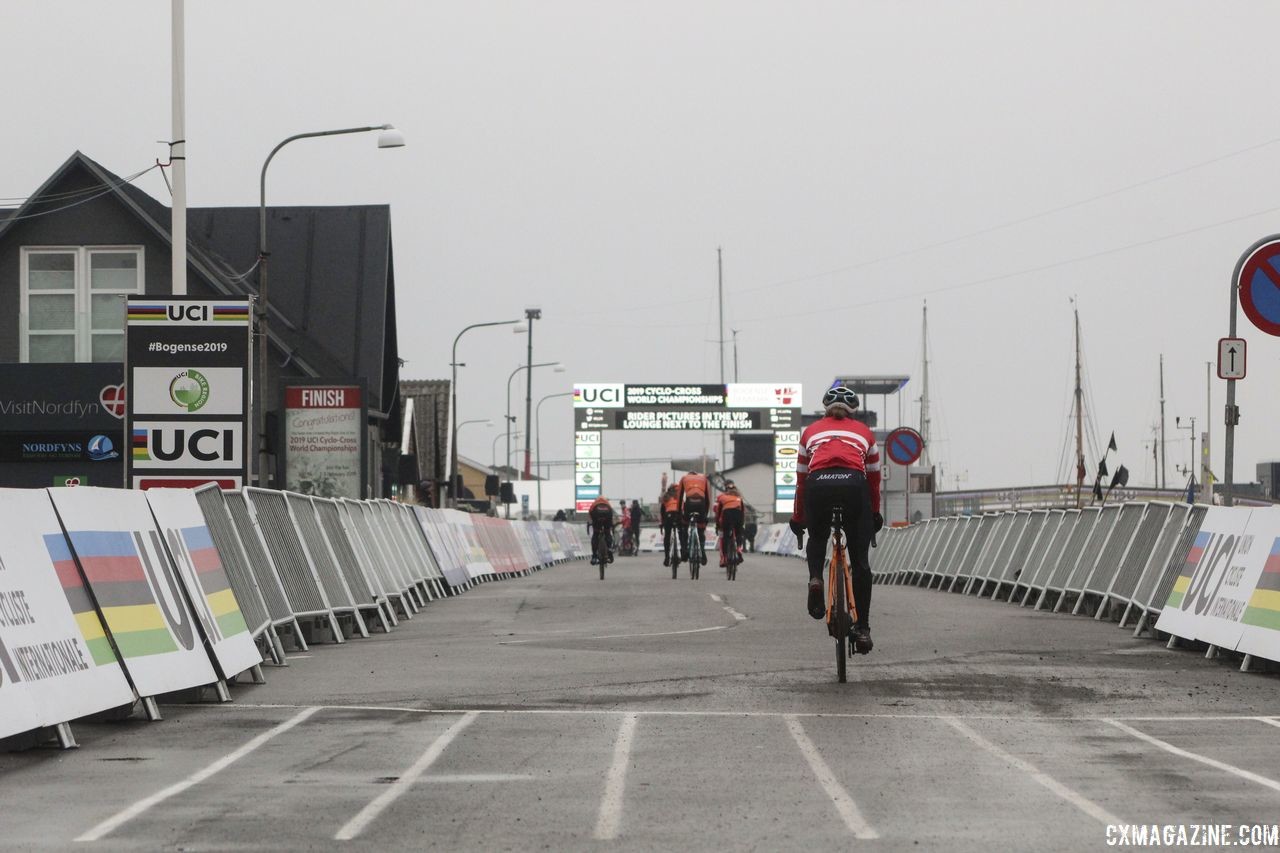
Down the finishing straight. 2019 Bogense World Championships Course Preview. © Z. Schuster / Cyclocross Magazine
For more from Bogense, see our 2019 Bogense World Championships page and enter to win our Worlds Fantasy Cyclocross contest.











